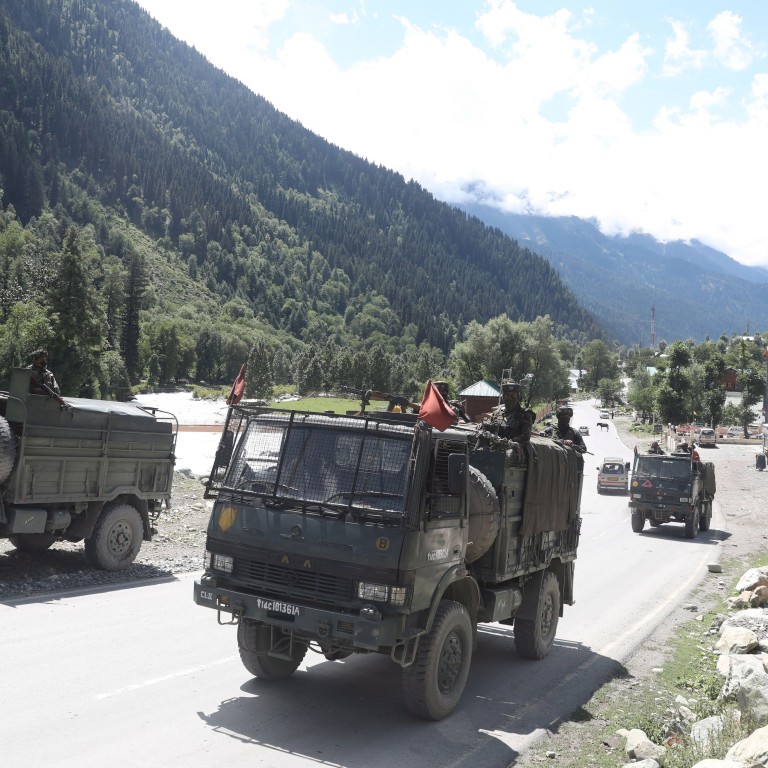
China-India relations: Beijing stresses that it does not recognise Ladakh
- China ‘does not recognise the so-called Ladakh union territory, illegally established by India’, foreign ministry says
- Statement comes after reports say India recently completed construction of eight new bridges in disputed region
The statement came after Indian media reported this week that India recently completed the construction of eight bridges in the mountainous region.
“China does not recognise the so-called Ladakh union territory, illegally established by India,” Chinese foreign ministry spokesman Zhao Lijian said on Tuesday, adding that Beijing “opposes the development of infrastructure construction in the border disputed area for the purpose of military control”.
But until last month it had stopped short of formally stating that it did not recognise the region.
Zhao’s comments and the large troop presence in the disputed region suggest Beijing and Delhi are still some way off a diplomatic solution to their months-long stand-off.
PLA troops eat mooncakes, tell Chinese not to worry in message from Indian border
“In terms of international law, not recognising Ladakh clarifies the fact that China questions the sovereignty of India’s actions in the territory, whereas China in the past had said it merely opposed India’s actions,” said Wang Jiangyu, a professor at City University of Hong Kong’s school of law.
“In contested issues like border disputes, foreign countries need to raise objections to establish a state practice. When Ladakh was formed China could of course oppose the action but by using the term ‘not recognise’ it shows China is opposed specifically to the institutionalisation of India’s claims.”
Atul Alexander, an assistant professor of law at the West Bengal National University of Juridical Sciences in India, said the recent change in tone from Beijing reflected a lack of commitment on both sides to an “agreement not to change the status quo, and to resolve their issues through dialogue”.
“There can only be headway if there is a willingness to return to discussions,” he said.
China and India have held multiple rounds of military and diplomatic talks since the outbreak of violent clashes along their disputed border in May but with little to show for them.
Stay alert for surprise Indian attack, retired Chinese general warns
Srikanth Kondapalli, a professor of Chinese studies at Jawaharlal Nehru University in Delhi, said Beijing’s repeated announcement that it did not recognise Ladakh would have little effect in India, except perhaps to stoke anti-China sentiment in the country.
“India will not reciprocate on China’s suggestions about what territories belong to it in the border regions, and be even less open to Beijing’s claims in other contested areas like the South China Sea,” he said.

